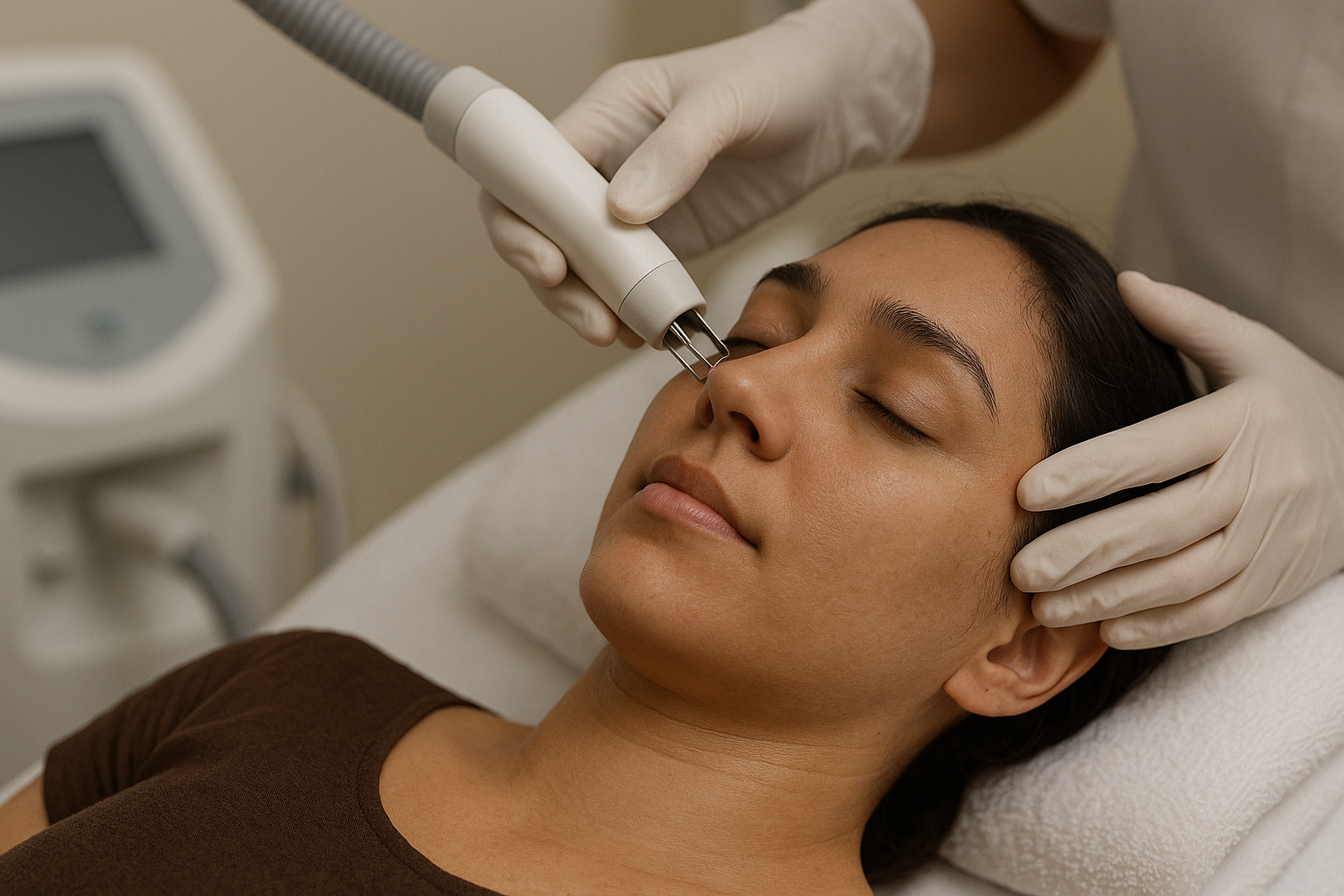- Introduction
- Understanding Alopecia Areata And Its Impact On Nails
- Symptoms And Early Signs Of Nail Involvement
- Causes And Risk Factors
- Diagnosis And Medical Evaluation
- Treatment Options For Alopecia Areata Of The Nails
- Advanced Clinical Treatments
- Home Remedies And Preventive Care
- Prognosis And Long-Term Outlook
- When To Seek Professional Help At Regencare?
- Conclusion
Introduction
Alopecia areata, an autoimmune condition causing hair loss, can also affect nails, leading to changes like pitting, ridges or brittleness and these nail health changes can be indicator of disease severity. Nail changes can sometimes be an indicator of underlying autoimmune conditions because the immune system’s attack on the body can manifest in various tissues, including the nail unit, leading to abnormalities. Early diagnosis and treatment of Alopecia areata at Regencare are crucial for managing the condition and potentially improving hair regrowth outcomes, as early intervention allows for the application of less intervention allows for the application of less aggressive therapies and can enhance a patient’s quality of life.
Understanding Alopecia Areata And Its Impact On Nails
Alopecia Areata is the nails refers to nail changes, including pitting, ridging and white spots, that can occur in individuals with Alopecia areata, an autoimmune condition causing hair loss. Nail changes may either precede the hair loss or occur months or years later, and may persist even after hair growth. Common misconception about nail damage and alopecia include believing white spots on nails indicate a calcium deficiency, that cutting cuticles is good for nail health, and that alopecia is solely caused by poor circulation or wearing hats.
Symptoms And Early Signs Of Nail Involvement
- Nail pitting: Is characterized by small dents or depressions on the nail surface.
- Brittle nails: Is also known as onychoschizia, are nails that are thin, soft and prone to splitting or breaking easily, due to dryness or excessive moisture.
- Longitudinal Ridges: Is also known as vertical nail ridge or onychorrhexis, is common raised lines that run from the base to the tip of nail, and is a normal part of aging.
- Redness & Inflammation: can indicate an infection or irritation, causing pain, swelling, and potentially pus formation.
- Several Nail Splitting: Is called as onycholysis, when nail separates from its nail bed. Which appears after a injury to nail, sometimes because of fungi.
Causes And Risk Factors
- Autoimmune Triggers: In alopecia areata, an autoimmune disorder, the body’s immune system mistakenly attacks hair follicles, causing hair loss and in some cases nail changes like pitting.
- Genetics & Family History: This disorder causing hair loss and nail has a strong genetic component, meaning individuals with a family history of the condition. The inheritance pattern is unclear because of multiple genetic and environmental factors appear to be involved.
- Environmental Factors: Factors like stress, diet, infections and allergies can significantly impact health, with stress potentially exacerbating allergic reactions and infections, while diet and infections can influence allergy development and severity.
- Conditions Associated with Nail Alopecia: Multiple skin diseases are associated with hormone dysregulation. Diseases such as psoriasis, thyroid disease or vitiligo are mostly to get alopecia areata.
Diagnosis And Medical Evaluation
Dermatologist identify nail alopecia through a physical examination, looking for signs like pitting, trachyonychia, leukonychia and red lunula and may use tools like dermatoscope or perform a biopsy if needed. Dermoscopy examination, also known as onychoscopy, uses a magnifying device to analyze nails, revealing subtle changes and aiding in the diagnosis of various nail disorders, including onychomycosis, melanonychia and nail psoriasis. In cases of alopecia areata, additional testing like biopsies and blood tests are typically considered when the diagnosis is unclear or to rule out other conditions causing hair loss, such as thyroid disease or iron deficiency. Differentiating nail conditions like fungal infections, and eczema can be tricky as they share similar symptoms, but key differences in appearance, cause and treatment exist.
Treatment Options For Alopecia Areata Of The Nails
TOPICAL AND ORAL MEDICATIONS:
- Steroid creams & ointment: The anti-inflammatory medications can be applied topically in the form of creams, ointments, lotions or foams.
- Minoxidil & Growth Serum: This topical medication, commonly known as Rogaine promotes hair growth by increasing blood flow to hair follicles.
- Oral Medications: Oral corticosteroids can be used for alopecia areata, although results may be better in those with a later age of onset. Immunosuppressants medications can be used to suppress the immune system and promote hair growth.
Advanced Clinical Treatments
- Platelet-Rich Plasma (PRP) Therapy: PRP injections in alopecia areata are a relatively effective, safe, low-pain and minimally invasive treatment with natural healing.
- Micro Needling for Nail Health: While it is the benefit in skin rejuvenation and hair growth, there’s limited evidence directly supporting its use for stimulating nail regrowth.
- Biological Therapies & Immunotherapy: New dermatological treatment involves biological therapies and Immunotherapy, including topical immunotherapy and JAK inhibitors.
Home Remedies And Preventive Care
- Diet & Supplements for Nail Strength: Biotin rich foods and supplements may help strengthen brittle fingernails. Vitamin A, E and D and zinc rich food should be included which supports repair the nails.
- Lifestyle Adjustments: Dietary changes, balanced diet and reduced stress can help prevent alopecia areata.
- Moisturizing & Nail Care Routines: Failing to follow a consistent nail care routine can worsen ridges. Moisturizing nails is important and also excessive moisturizing is not recommendable.
Prognosis And Long-Term Outlook
While there’s no cure for nail changes associated with alopecia areata of the nails , some individuals experience spontaneous improvement or can see positive results with treatments like topical corticosteroids or retinoids. Managing flare-ups and remission periods involves a combination of lifestyle changes, stress management, and adherence to prescribed treatments, as well as identifying and avoiding triggers. If one notice sudden, persistent symptoms like changes in nails or patchy hair loss causing stress or anxiety, consult a dermatologist, as they can diagnose alopecia areata and discuss treatment options.
When To Seek Professional Help At Regencare?
Regencare is accredited for providing specialty treatments in Aesthetic dermatology consultation. Our nail specialists typically offer a more comprehensive range of services, including advanced nail infection remedies and personalized treatment plans. Consult a dermatologist, who have alopecia areata develops nail changes like tiny dents, brittle nails etc, because early symptoms shouldn’t be ignored. Expert consultation matters because it provide access to what happened and they give best consultation for the problem.
Conclusion
Proper nail hygiene remains a mainstay in the prevention of the complications of chronic nail biting. Early diagnosis, early initiation of treatment to prevent permanent nail damage. Prevent nail breakage with a stress free lifestyle, balance diet and nail care, hydration and dietary supplements.
Book a Consultation Today!
Book an appointment at Regencare Dermatology online or via call for best consultation.



